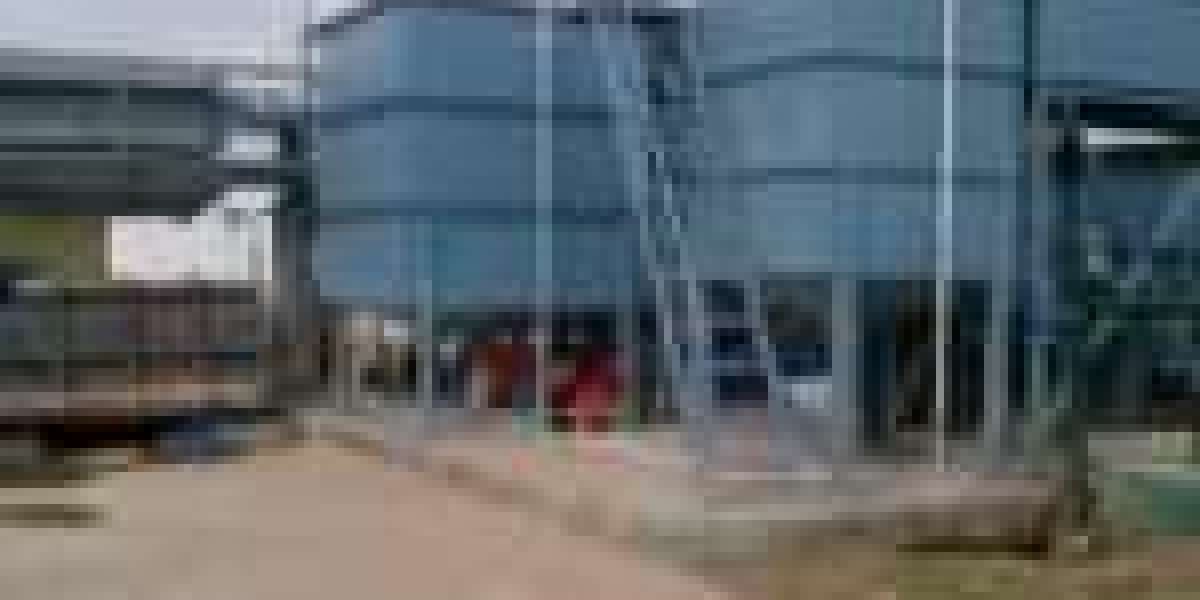As Pune’s industrial sector continues to expand, the importance of environmental sustainability has never been greater. One of the primary challenges facing industries in the city is managing effluent – the wastewater that is generated during various industrial processes. The textile, chemical, and pharmaceutical industries, in particular, produce large quantities of wastewater that contain harmful pollutants, including dyes, chemicals, and organic matter. Without proper treatment, this effluent can cause significant environmental damage.
However, in recent years, green technologies in effluent treatment plants (ETPs) have emerged as a sustainable solution to this problem. These advanced, eco-friendly technologies not only help industries comply with stringent environmental regulations but also enable them to contribute positively to Pune’s journey toward sustainability. This article explores the role of green technologies in effluent treatment plants, and how they are paving the way for a greener, more sustainable future for Pune.
What Are Green Technologies in Effluent Treatment?
Green technologies in effluent treatment are those that focus on reducing environmental impact by utilizing eco-friendly processes and energy-efficient methods to treat wastewater. These technologies aim to minimize the use of chemicals, reduce the carbon footprint, and promote water reuse. Some of the most popular green technologies used in effluent treatment include:
Biological Treatment Systems
Membrane Bioreactor (MBR) Systems
Zero Liquid Discharge (ZLD) Systems
Advanced Oxidation Processes (AOP)
Electrocoagulation
Reverse Osmosis (RO)
Energy Recovery and Reuse Technologies
Key Green Technologies in Pune’s Effluent Treatment Plants
Biological Treatment Systems
Biological treatment is one of the oldest and most widely used green technologies in effluent treatment. It involves the use of microorganisms to break down organic matter in wastewater. The process is both effective and environmentally friendly, as it relies on natural biological processes to degrade pollutants without the need for harmful chemicals.
In Pune, industries are increasingly adopting activated sludge processes, trickling filters, and oxidation ponds to treat effluent. These systems not only reduce the pollution load but also allow for the recycling of treated water back into industrial processes or for irrigation purposes.
Membrane Bioreactor (MBR) Systems
The Membrane Bioreactor (MBR) combines biological treatment with membrane filtration to provide high-quality effluent treatment. It is particularly effective for industries such as textiles and pharmaceuticals, where the effluent contains a high concentration of organic matter and fine particles.
The MBR system operates by passing effluent through a membrane filter, which removes suspended solids and microorganisms. The biological treatment process occurs simultaneously, breaking down organic pollutants. The treated water produced by the MBR system is of excellent quality and can be reused in industrial applications, thus promoting water conservation.
In Pune, MBR systems are gaining popularity due to their compact size and high efficiency in treating effluent with minimal environmental impact.
Zero Liquid Discharge (ZLD) Systems
Zero Liquid Discharge (ZLD) is a cutting-edge technology that ensures no liquid waste is discharged from the effluent treatment process. ZLD systems recover nearly all the water in the effluent, which can then be reused within the industry or safely released into the environment. This process significantly reduces water consumption and minimizes the discharge of pollutants.
In Pune, where water scarcity is a growing concern, ZLD systems are becoming increasingly attractive to industries looking to reduce their dependence on freshwater sources. ZLD technologies also help industries meet strict regulatory requirements and achieve a high level of sustainability by ensuring that no liquid waste is disposed of into water bodies.
Advanced Oxidation Processes (AOP)
Advanced Oxidation Processes (AOP) use powerful oxidizing agents such as ozone, hydrogen peroxide, and UV light to break down complex pollutants in wastewater. AOP is highly effective in treating wastewater with dyes, pharmaceutical residues, and other toxic chemicals that are often found in effluent from textile and chemical industries.
AOP is a key green technology because it does not rely on traditional chemical treatments and has a minimal environmental footprint. In Pune, industries are increasingly adopting AOP systems for treating particularly challenging effluents that are not easily treated by conventional methods.
Electrocoagulation
Electrocoagulation is an innovative technology that uses electrical currents to destabilize contaminants in the effluent. The process involves passing an electric current through the effluent, causing metal ions to coagulate and remove pollutants from the water. The resulting sludge can then be safely disposed of, and the treated water can be reused or discharged.
Electrocoagulation is gaining traction in Pune because it is highly effective, requires low energy consumption, and produces minimal sludge, making it an attractive option for industries looking for eco-friendly treatment solutions.
Reverse Osmosis (RO)
Reverse Osmosis (RO) is a membrane filtration process that removes dissolved salts, chemicals, and other contaminants from wastewater. It works by forcing water through a semipermeable membrane, which filters out impurities. RO is an essential part of effluent treatment, particularly for industries that need high-purity water for their processes.
In Pune, RO systems are used to treat effluent from textile and pharmaceutical industries, allowing them to reuse treated water in their operations and significantly reduce freshwater consumption.
Energy Recovery and Reuse
Incorporating energy recovery systems into effluent treatment plants is an essential part of the green technology trend. By capturing energy from processes such as biogas production, membrane filtration, and turbines, industries can significantly reduce their operational costs and carbon footprint.
In Pune, several industries are integrating biogas-based energy systems into their ETPs, where the methane gas generated from biological treatment processes is used to generate power for the plant. This helps industries reduce their energy consumption and promote sustainability.
Benefits of Green Technologies in Effluent Treatment
Water Conservation: By utilizing technologies like ZLD, membrane filtration, and biological treatment, Pune’s industries can recycle and reuse wastewater, significantly reducing the demand for freshwater.
Cost Savings: Green technologies often reduce the cost of wastewater disposal, minimize chemical usage, and improve energy efficiency, leading to long-term cost savings.
Regulatory Compliance: Green technologies help industries comply with environmental standards set by the Maharashtra Pollution Control Board (MPCB) and other regulatory bodies, avoiding fines and penalties.
Reduced Environmental Impact: These technologies help reduce pollutants discharged into water bodies, improving water quality and protecting the environment.
Energy Efficiency: Many green technologies focus on minimizing energy consumption, which is crucial for reducing the carbon footprint of industries in Pune.
Pune’s Path to Sustainability
Pune is at the forefront of adopting green technologies in effluent treatment, making significant strides towards a more sustainable industrial landscape. As industries continue to grow and environmental concerns mount, it is clear that adopting eco-friendly effluent treatment solutions is not only the right thing to do but also a smart business decision.
By investing in green technologies, industries in Pune can contribute to a more sustainable future, protect the environment, and ensure compliance with increasingly stringent regulations. This shift towards sustainable practices will not only benefit industries but also enhance Pune’s reputation as a green city that is committed to environmental protection and sustainable development.
Conclusion
The integration of green technologies into effluent treatment plants is an essential step towards a sustainable industrial ecosystem in Pune. With advancements in biological treatment, zero liquid discharge, reverse osmosis, and other technologies, Pune’s industries are well on their way to reducing water consumption, minimizing environmental pollution, and meeting regulatory standards. As the city continues to grow, the adoption of these green technologies will ensure that industrial progress and environmental protection go hand in hand.



